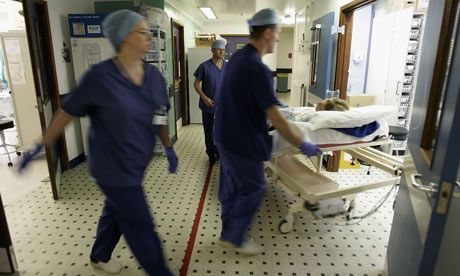

Information regarding insurance and financial assistance to help pay for care.After you leave the hospital, they can help arrange continued support at home. Social workers offer counseling and other services while you or a family member are in the hospital. If you need an interpreter, call 30 or ask a hospital staff member. Communication & interpreter servicesĬlear communication is essential in order to give you and your family the best possible care. Below, find details about services that patients and families most often require. © 2023 NYP Holdings, Inc.We work as a team to provide the range of support you may need while you're in our care. Other serious concerns revealed by the survey included a lack of any control over workloads and concerns about patient safety.įor example, more than half of physicians and nurses are not confident that their patients can safely manage their care after they are discharged from the hospital.

Nurses and doctors are openly hostile to wellness programs and resilience training that fails to address the root causes of widespread burnout. Workplace safety has also been cited as a serious problem: In the years since 2010, the rate of workplace violence injuries in hospitals has increased 95%, according to a 2021 report from the AFL-CIO.Īnd a staggering 82% of nurses surveyed by National Nurses United reported experiencing at least one type of workplace violence during the COVID-19 pandemic. David Hass, president of the Connecticut State Medical Society, told NBC Connecticut. “There’s been a tremendous number of physicians and nurses … that have chosen to retire early solely because of the fact that they were working their tails off during COVID,” Dr. Many clinicians over the age of 55, however, have simply decided to go into retirement early. When the pandemic hit, hospitals “got caught flat-footed.”Īmong nurses in the survey, 87% agreed that improving nurse staffing was “very important” to their well-being, and 45% of doctors agreed. Linda Aiken, professor at Penn Nursing’s Center for Health Outcomes and Policy Research at the University of Pennsylvania, told The Post.ĭoctor burnout linked to overprescribing opioids, antibiotics: studyīut, Aiken added, “Things were bad before the pandemic,” and burnout was almost as high. “Hospitals have not been able to recover,” study author Dr. Nationwide shortages of nursing staff and doctors were cited as a leading source of the problems. Getty Images/iStockphotoīut working conditions haven’t improved much since the pandemic crisis ended. Hospital doctors and nurses agree that increases in nurse staffing is the best solution to clinician burnout. The COVID-19 pandemic was a breaking point for many health-care workers, who worked under brutal conditions and with the fear that they might contract the deadly coronavirus - and carry it home to their families.

The nationwide survey of 21,050 clinicians was conducted at 60 hospitals recognized by the American Nurses Credentialing Center as Magnet hospitals offering the best in nursing care and patient support. Nearly half of all nurses (47%) reported burnout, and 40% of nurses would leave their jobs if it was possible, according to the survey, published in JAMA Health Forum.ĭoctors don’t fare much better: 32% reported feeling burnout, and 23% of hospital doctors would quit if possible. If that sounds like an ideal job, consider working in a hospital.Ī new survey finds that hospital doctors and nurses - including those at institutions ranked among the best in the nation - are suffering from job burnout at alarming rates. And a chance that you’ll catch a deadly illness. Mom influencer accused of faking her 3-year-old daughter’s rare illnessesĪlzheimer’s patient: New ‘miracle’ drug has ‘given me my life back’ Langone family’s $200M gift makes NYU med school tuition-free forever Mystery outbreak of a deadly, paralyzing disease has experts baffled


 0 kommentar(er)
0 kommentar(er)
